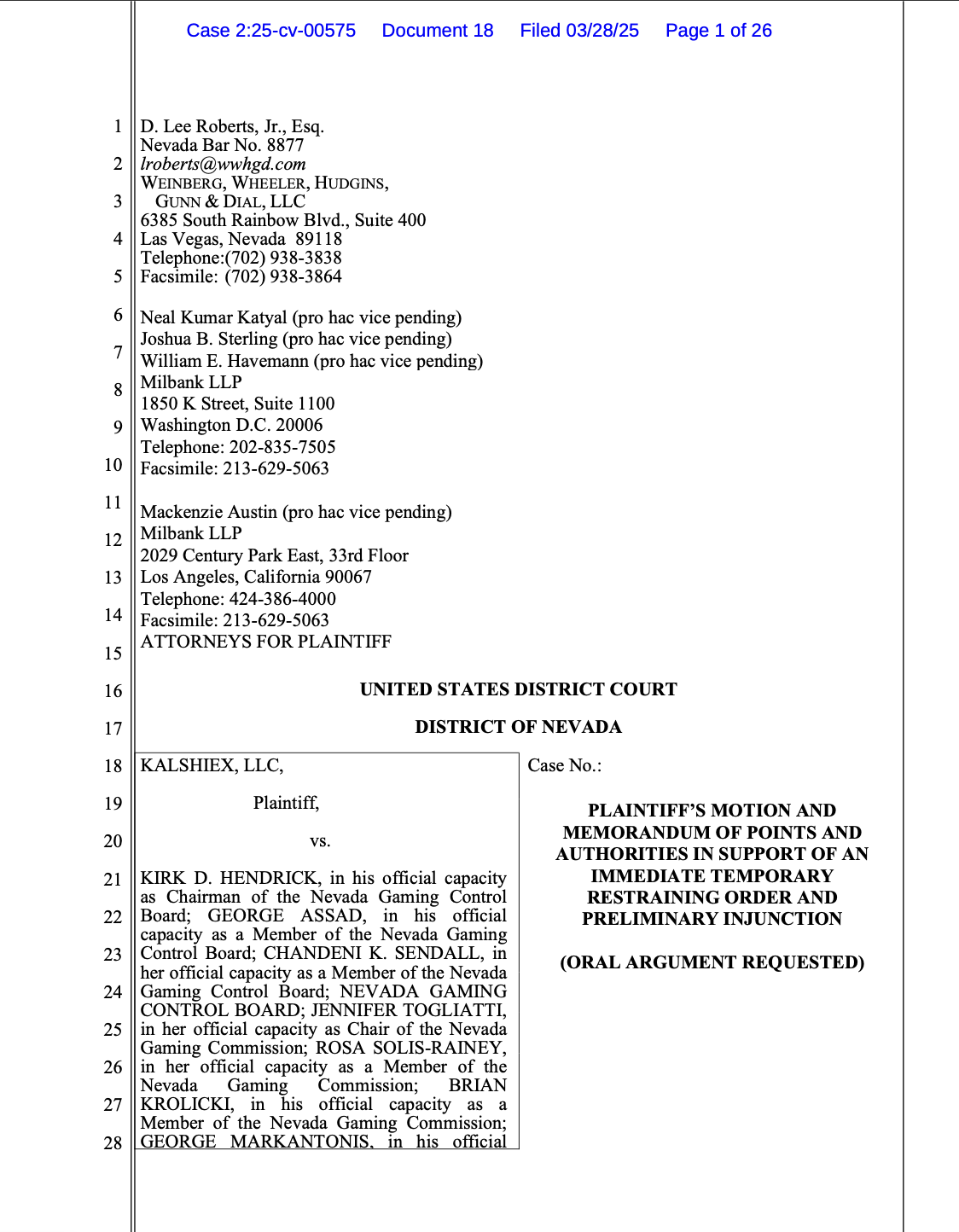A prediction market has initiated legal action against the Nevada Gaming Control Board and the New Jersey Division of Gaming Enforcement following the issuance of cease and desist orders mandating that the company halt all sports-related contracts within those states.
The firm’s legal representatives assert that these contracts should be governed by the Commodities Futures Trading Commission (CFTC), thus placing them outside the scope of state regulatory bodies.
The legal team further argues that the cease and desist orders overlook the fact that the firm’s event contracts operate as two-sided markets, akin to swaps, rather than adhering to the traditional sports betting model where the house maintains control. Co-founder Tarek Mansour remarked:
“Prediction markets represent a vital innovation of the 21st century, and much like all groundbreaking developments, they can be misunderstood at first. We take pride in being at the forefront of this technology and are prepared to defend it anew in a court setting.”
Moreover, the Nevada Gaming Control Board also issued a cease and desist order regarding the company’s election contracts, which a U.S. judge determined to be legal in September 2024, granting those contracts the freedom to trade within the U.S.

Lawsuit against Nevada Gaming Control Board.
Related: Massachusetts investigates Robinhood regarding sports prediction markets
CFTC shifts away from regulatory enforcement
On February 4, the acting director of the CFTC announced a notice marking a significant shift in regulatory approach, ending enforcement actions as a means of regulation and instead prioritizing fraud prevention.
“The CFTC is enhancing its enforcement strategy to prioritize the protection of fraud victims while remaining watchful for other legal violations,” Pham stated.
This notable change at the CFTC was met with optimism by industry participants, as it signaled a welcome shift away from extensive regulatory lawsuits and enforcement initiatives seen during the previous administration.
On the same day the notice was released, the regulator also began an investigation into Super Bowl event contracts offered by the firm and another platform, aiming to verify compliance with current derivatives regulations in the U.S., ultimately leading to no restrictions being placed on the contracts.
Magazine: Train AI agents for improved predictions… in exchange for token rewards
